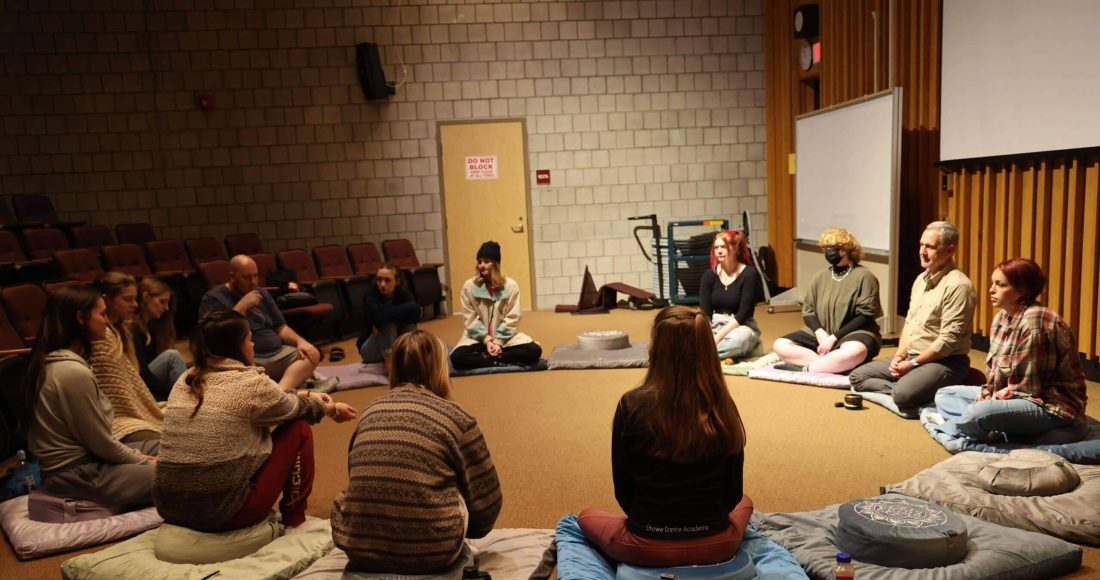
Exploring Alternative Health: Natural Paths To Wellness In The Modern World
As modern medicine continues to make extraordinary advancements in diagnostics, pharmaceuticals, and surgical procedures, there has been a parallel rise in the popularity of alternative health practices. From herbal remedies and acupuncture to yoga and energy healing, more people are turning toward non-conventional approaches for prevention, healing, and overall well-being.
Alternative health, also known as complementary or integrative medicine, is not about rejecting conventional healthcare. Instead, it seeks to expand the ways we understand and support the body’s natural ability to heal. It blends ancient traditions with modern insights, emphasizing a more holistic, personalized, and preventative approach to health.
What Is Alternative Health?
Alternative health refers to a diverse set of healing philosophies and practices that fall outside mainstream Western medicine. While some of these practices have been used for centuries in traditional systems like Chinese or Ayurvedic medicine, others have emerged more recently as part of a growing movement toward natural and holistic wellness.
Alternative health can include:
-
Herbal medicine
-
Homeopathy
-
Acupuncture
-
Chiropractic care
-
Ayurveda
-
Traditional Chinese Medicine (TCM)
-
Naturopathy
-
Energy healing (Reiki, biofield therapy)
-
Meditation and mindfulness
-
Yoga and movement therapies
-
Functional and integrative medicine
Although “alternative” implies a replacement for conventional care, many of these practices are used in combination with standard treatments. This is often referred to as complementary or integrative health care.
Why Is Alternative Health Gaining Popularity?
There are several reasons for the surge in interest in alternative health practices:
1. A Holistic View of Health
Mainstream medicine often focuses on treating symptoms or specific conditions. Alternative health views the person as a whole—body, mind, and spirit. Many people are drawn to this holistic perspective, which aims to address root causes and promote overall balance.
2. Desire for Natural Solutions
Many people prefer to avoid pharmaceutical drugs when possible due to concerns about side effects, dependency, or long-term health risks. Alternative medicine often emphasizes natural remedies, diet, and lifestyle changes before turning to invasive treatments or medication.
3. Preventative Focus
Alternative health stresses prevention through lifestyle modifications, stress management, and natural supplementation. This proactive approach can be empowering for individuals looking to take control of their own well-being.

4. Chronic Illness and Dissatisfaction with Conventional Care
Patients with chronic illnesses like fibromyalgia, IBS, autoimmune diseases, or anxiety often report frustration with limited success from conventional treatments. Alternative therapies can provide additional tools for symptom management and improved quality of life.
5. Cultural and Spiritual Alignment
Many alternative health systems have spiritual or philosophical underpinnings. Practices like meditation, yoga, and energy healing appeal to individuals seeking meaning, peace, or spiritual growth alongside physical wellness.
Popular Alternative Health Practices
Here are a few of the most widely used and researched alternative health practices:
1. Acupuncture
Originating in China over 2,000 years ago, acupuncture involves inserting thin needles into specific points on the body to restore the flow of energy or “qi.” Modern research shows acupuncture can help with pain relief, anxiety, insomnia, and even nausea related to chemotherapy.
2. Herbal Medicine
Plants have been used medicinally in nearly every culture. Modern herbalists use botanicals like turmeric (anti-inflammatory), ashwagandha (stress-reducing), or echinacea (immune-boosting) to treat a wide variety of ailments. However, not all herbs are safe or effective, so professional guidance is recommended.
3. Chiropractic Care
Chiropractors focus on the alignment of the spine and nervous system. Manual spinal adjustments can relieve back and neck pain, improve posture, and enhance mobility. Some practitioners also offer dietary, exercise, and lifestyle advice.
4. Ayurveda
This Indian system of medicine views health as a balance of three energy types, or doshas. Treatments may include herbal remedies, dietary changes, oil massage, detoxification (panchakarma), yoga, and meditation.
5. Functional Medicine
A growing number of MDs and healthcare professionals now practice functional medicine—a science-based approach that looks at genetic, environmental, and lifestyle factors to address the root causes of disease. It often includes detailed lab testing, personalized nutrition plans, and supplement protocols.
6. Energy Healing
Practices like Reiki, Qi Gong, or Therapeutic Touch aim to rebalance the body’s energetic field. While some critics question the scientific validity of energy healing, many people report reduced stress and increased emotional well-being after sessions.
7. Mind-Body Therapies
Meditation, mindfulness, breathwork, tai chi, and yoga all help connect the body and mind. These practices are now widely accepted as effective tools for reducing stress, improving sleep, managing chronic pain, and boosting mental clarity.

The Science Behind Alternative Health
While skepticism still exists, scientific research increasingly supports the efficacy of many alternative practices:
-
Meditation and mindfulness have been shown to reduce cortisol levels, improve attention, and alleviate symptoms of depression and anxiety.
-
Herbal remedies like St. John’s Wort (for depression), ginger (for nausea), and peppermint oil (for IBS) have been backed by clinical trials.
-
Yoga has demonstrated benefits for flexibility, cardiovascular health, chronic pain, and even PTSD.
-
Acupuncture is now recommended by several major medical associations for chronic pain and migraine relief.
That said, not all alternative treatments are supported by strong evidence. Some may work through placebo effects or individual variation, and others may pose risks if used improperly or in place of necessary medical treatment.
Risks and Considerations
While alternative health can offer powerful tools for healing and prevention, it’s not without risks:
-
Delayed diagnosis or treatment: Using alternative therapies exclusively may delay important conventional treatments, especially for serious conditions like cancer or infections.
-
Herbal interactions: Some herbs can interfere with medications, such as blood thinners or antidepressants.
-
Lack of regulation: Not all alternative practitioners are licensed or qualified. It’s important to check credentials and experience.
-
False promises: Be wary of practitioners who promise quick cures or use fear to discourage conventional care.
The safest and most effective approach is often an integrative model—combining evidence-based alternative treatments with conventional medicine under professional supervision.
Final Thoughts
Alternative health is not about rejecting modern medicine. It is about expanding our view of health, honoring ancient wisdom, and recognizing the body’s innate capacity to heal. Whether you’re managing a chronic illness, seeking preventative care, or simply looking to improve your mental and physical well-being, alternative health offers tools that can enrich your journey.
As always, the best approach is an informed one. Work with qualified practitioners, do your research, and most importantly—listen to your body.







